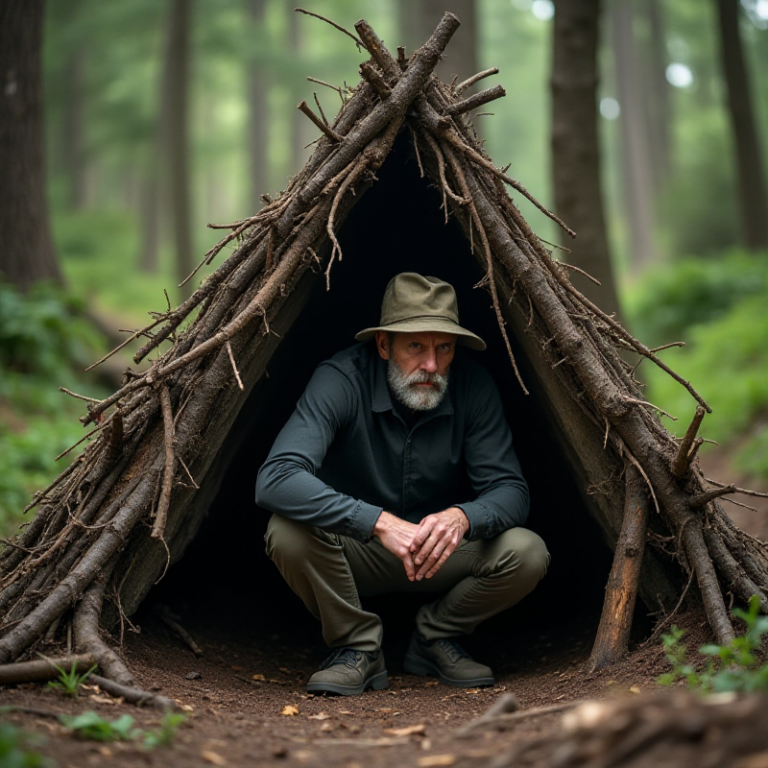Bushcraft survival skills are the foundation of thriving in the wilderness. Whether you’re an outdoor enthusiast, a prepper, or just curious about self-reliance, bushcraft teaches you how to live in harmony with nature. In this guide, we’ll explore essential tips to help you feel confident and prepared for any situation.
What is Bushcraft Survival?
At its core, bushcraft is about using natural resources to survive and thrive in the wild. It’s not just about making do—it’s about mastering your environment with skills like fire-making, shelter-building, and foraging. These techniques were used by our ancestors and are still valuable today.
The Essentials of Bushcraft: Where to Start
1. Master the Art of Fire-Making
A good fire is key to survival. Not only does it provide warmth, but it’s also essential for cooking, purifying water, and keeping predators at bay. Start by learning to use a ferro rod or flint and steel. Practice making a tinder bundle using dry grass, bark, or cotton.
Pro Tip: Practice in different weather conditions. Knowing how to start a fire in rain or wind could be life-saving.
2. Build a Reliable Shelter
A proper shelter protects you from the elements and helps you conserve energy. The simplest option is a lean-to made with branches and leaves. For colder climates, consider a debris hut, which provides insulation.
Pro Tip: When building a shelter, pick a location near resources like water but away from hazards like falling branches.
3. Learn to Purify Water
Clean water is non-negotiable for survival. Carrying a portable water filter is ideal, but knowing how to purify water naturally is even better. Boiling water is the most reliable method. In emergencies, you can use certain types of charcoal or solar stills to filter it.
Pro Tip: Always gather water from moving sources like rivers or streams to reduce contamination risk.
Advanced Bushcraft Skills to Thrive
4. Foraging for Food
Nature is full of edible plants, berries, and fungi—but knowledge is your best tool. Carry a reliable guidebook or take a foraging course to identify safe options.
Pro Tip: Follow the “rule of threes”: never eat anything you can’t identify with certainty, and always test new plants in small amounts.
5. Navigation Without Gadgets
GPS devices are great, but they’re useless without power. Learn how to navigate using the sun, stars, and landmarks. A compass and a map are excellent backups.
Pro Tip: Practice finding your way in familiar areas before heading into unknown territory.
6. Crafting Tools from Nature
Bushcraft often involves creating tools using what’s around you. From carving wooden utensils to making cordage from plants, these skills make a huge difference in self-reliance.
Pro Tip: Always carry a versatile survival knife—it’s the ultimate bushcraft companion.
How to Thrive, Not Just Survive
Bushcraft isn’t just about surviving—it’s about thriving. Developing these skills gives you the confidence to turn challenges into opportunities. For example, instead of simply building a fire, you can craft a fire reflector to maximize warmth. Instead of just finding water, learn to store it safely for later use.
The key is practice. Spend time outdoors, challenge yourself to use fewer tools, and immerse yourself in nature. The more you practice, the more intuitive these skills become.
Bushcraft and Community
Bushcraft isn’t just a solo activity. Join a local bushcraft group or attend workshops to meet like-minded individuals. Sharing knowledge and experiences can make learning even more rewarding.
Pro Tip: Online forums and social media groups are excellent places to find tips, share stories, and learn from experienced survivalists.
Bushcraft survival is more than just a set of skills—it’s a mindset of resourcefulness and adaptability. With practice, you’ll not only survive in the wild but truly thrive. So grab your gear, head outdoors, and start your bushcraft journey today.



